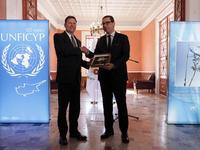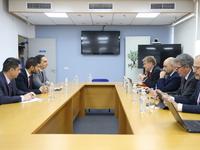Press Releases
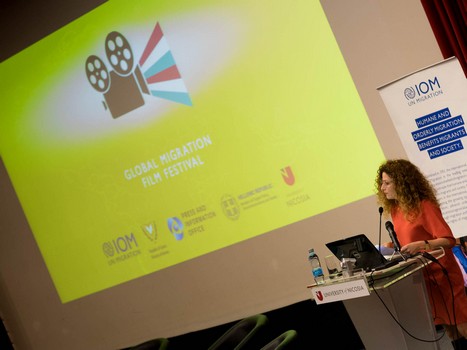
11-12-2018 10:31
Address by the Director of the Press and Information Office, Ms Sophie Michaelides, at the 2018 Global Migration Film Festival-Cyprus
Allow me, first of all, to express my sincere congratulations to the UN International Organisation for Migration (IOM), for generously offering its services and advice to governments and migrants.
It is, therefore a distinct honour and privilege for the Press and Information Office of the Republic of Cyprus to be a co-organiser of this year’s Global Migration Film Festival in Cyprus, and my personal pleasure to be part of today’s discussion, as it kicks off.
Ladies and Gentlemen,
A constantly growing number of people are forced to flee from their own war-torn regions, seeking international protection, while each passing year shows that migration is neither transitory nor anywhere to being over. International migration and asylum seeking are nowadays amongst the top issues of worry for the EU member states and, undoubtedly, it can only be addressed effectively if all stakeholders act upon their share of responsibility.
Before 2015, the EU was preoccupied with issues such as the political and economic future of the EU itself, the economic and monetary crisis across the seven seas and balancing its own financial debt. Coping with migration has become a serious challenge for the EU and its members, since this huge problem was not received early enough by any satellite, and we were all caught off-guard.
Europe is currently witnessing a mixed-migration phenomenon, in which economic migrants, asylum seekers and refugees travel together. The image of boat-loads of migrants from areas of crisis such as Africa, the Middle East and South Asia arriving at the shores of EU’s external borders, portray the scale of the issue and the challenges EU member states have to face.
Some more than others. It is a fact that Cyprus is witnessing an unprecedented and excessive increase in migration flows and clearly it outperforms its fair share compared to other countries. Cyprus, as the easternmost end of the European Union, has always been a vital migrant-receiving and transit country. Faced with the multi-dimensional challenge of effectively managing migratory waves, while preserving social cohesion, progress and prosperity, Cyprus is caught literally and geographically in the middle of the turbulence.
The continual migrant arrival waves to the island have increased dramatically. Specifically, Cyprus ranks first among the EU members with regard to asylum applications in relevance to its population. During the first half of 2018, applications for international protection in Cyprus increased by 55% compared with the respective period of 2017, while the majority of asylum applicants in 2018 come from Syria, followed by India, Pakistan, Bangladesh, Egypt and Iran.
But, I will not refer to numbers and figures any more. I just want all of us to keep in mind that Cyprus is really a small country, an island in fact, a divided island nevertheless, which is still under military occupation, with huge unresolved issues with its own refugees, accounting to hundreds of thousands, still. Cyprus is also a country, which is still working its way out of the economic crisis and high unemployment rates at all age groups of its own citizens.
Even though Europe has progressed its actions since 2015, with the “Valetta Action Plan”, the EU-Arab Agreement and the Agreement with Turkey, we still have a long way to go. For example, one cannot ignore the fact that the non-implementation of the EU-Turkey Readmission Agreement, and Turkey’s failure to comply with its obligations, aggravates the situation. Considering that there is no “one-size-fits-all” approach to the issue, one must be realistic in terms of reception capacity and also in ways of integrating people.
Despite the fact that substantial progress has been noted during the years, migration-related dialogue remains bound up with several challenges. As it turns out, an integrated European framework and an “open communication policy” is absolutely necessary for the effective management of the issue.
With this regard, Cyprus also participated actively in the negotiations of the United Nations Intergovernmental Conference for the Global Compact on Migration, which was successfully adopted yesterday in Morocco.
In this respect, lays also the need for effective investment in communication management, aiming aggressively on xenophobia and stereotyping.
While the issue of migration is one of political and economic dimensions, the communication challenge we are faced with is a human one. The successful integration of refugees and migrants in the socio-economic structure and the cultural direction of the hosting country is what should guide us.
No matter how well, or not so well, the issue is addressed policy-wise, we, the communicators, are faced not by the effectiveness of numbers but, by the emotional expectations of the public and the diverted drives of the Media trend-makers.
Attitudes do not change easily. People need to talk about the feeling. And listen to it. Only then, we all learn.
We, the Press and Information Office, as the Communication Authority of the Republic, are ready to strategize, coordinate and implement our Government’s decisions regarding the communication of the issue, in cooperation with all the stakeholders.
Whether we achieve this
• by engaging with Media which have educated and balanced rhetoric and operate towards preventing polarisation and fanaticism of the masses,
• or by becoming better by addressing the issues of migration by changing our own narrative,
• or by social and financial integration of the migrants by providing them with the knowledge of the local language, higher level of education and legal and productive work,
• or by correctly addressing the issues raised by the local community in regards to the matter,
we can only have a satisfactory communication plan, if we promote one and only punchline: conversation, engagement, trust.
Dear friends,
Thank you for today’s opportunity and for your attention.
(ΕΑ/ΑΧ)
Relevant Press Releases

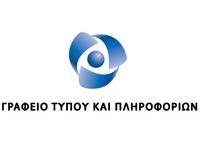
19-04-2024 16:42
PIO e-mail Αlerts service is suspended
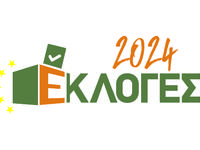
11-03-2024 08:41
Elections 2024 – European and Local Government Elections 2024
